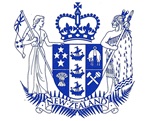
The taxation implications of company law reform
A discussion document
December 1993
Annex 5.3: Income Tax Act Application of Proprietary Company Definition
- Section 2 - definition of term "expenditure on account of an employee". This is only relevant to any payment made by a proprietary company before 1 April 1989 in respect of expenditure incurred by an employee.
- Section 4(1)(k) - Certain proprietary company expenditure will constitute a dividend where the benefit of that expenditure is enjoyed by a shareholder of the company.
- Section 4(9) - If shareholders repay any expenditure which has been treated as a dividend under section 4(1)(k) the Commissioner, in certain circumstances, can amend the assessment by reversing the dividend and refunding any tax paid in excess.
- Section 4(12) - This provision exempts certain deemed dividends arising under section 4(1)(l) between 1 April 1992 and 31 March 1993.
- Section 7(3) - The provision for determining who has control of a company provides that, in relation to a proprietary company, where there is a group of persons, not exceeding four in number, who, for example, hold more than 50 percent of the company's shares, the company will be deemed to be under the control of those persons for the purposes of the section 2 proprietary company definition. It will be irrelevant that there may be another group of persons who could also be deemed to have control of the company under any of the other tests used to determine control of a company in section 7(2) such as paid-up capital, voting power or entitlement to profits.
- Section 97(1) - This provision allows the Commissioner to re-allocate for tax purposes excessive remuneration paid by certain taxpayers to relatives. The reference to a proprietary company in this provision is exclusionary in nature only and has the result that the provision does not apply to a proprietary company making a payment of excessive remuneration.
- Section 151(2) - A proprietary company is denied a deduction for any pension paid to a former employee who is or was a shareholder in the company unless the Commissioner is satisfied that the former employee was a bona fide employee of the company and the size of the pension was similar to that which would have been arranged on an arm's length basis.
- Section 190 - The Commissioner in certain cases may limit the deduction available for remuneration paid to any shareholder, director, or one of their relatives, by a proprietary company to the extent that the Commissioner considers such remuneration to be excessive. The amount of remuneration considered by the Commissioner to be excessive is deemed to be a dividend paid by the company to the recipient.


